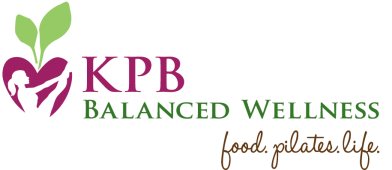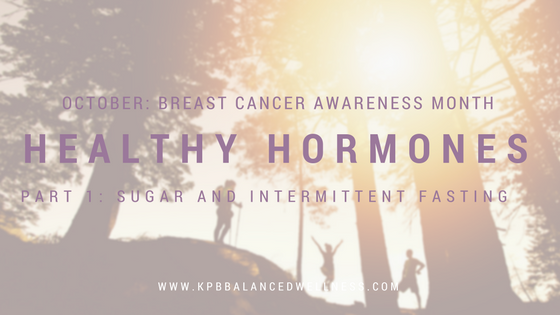With this month being Breast Cancer Awareness month and Pregnancy and Infant Loss Awareness month I’m doing a 3-part series on hormone health. One in eight women in the U.S. will be diagnosed with breast cancer in her lifetime. One in five pregnancies end in miscarriage. Those are big numbers. I know it can feel like our hormones have a mind of their own and it is out of our hands. But, over the next few weeks, I’m going to talk through three big areas where we can have a major impact on our hormone health; sugar, gut health and our personal care products. This week let’s talk sugar:
-
Say No to Sugar
If blood sugar levels are off, so are hormone levels. Blood sugar to the system is a top priority and its regulation is determined by, can you guess? Hormones. If your body is constantly working to regulate sugar, cortisol is increased. High cortisol ends up blocking the progesterone receptors making it feel like you have low progesterone. Progesterone is the calming hormone that we all want. High cortisol also reduces the production of your thyroid hormones, and slows down your metabolism. And this means weight gain.
Sugars sneak into our diet in many ways. I have many clients who tell me they don’t really eat sugar, but here are some sneaky signs demonstrating blood sugar levels aren’t quite right:
- You can’t go more than 3 hours without getting ‘hangry’.
- Your energy dips at either 10am or 3pm.
- You don’t sleep well or very little.
- You need to snack before bedtime.
Sugar isn’t just a candy bar or lollipop, it’s oatmeal, the fruit-heavy smoothie, crackers and cheese, pretzels, and the wine after dinner. Once you’ve started your day with a carb-loaded breakfast, it is really hard to get back on track. Your blood sugar train is off and running. Start your day with some protein, fiber and fat such as:
- Baked egg and half an avocado.
- Soup for breakfast.
- Chicken sausages and greens.
- Hard-boiled eggs and sautéed veggies.
-
Intermittent Fasting
For many, changing the diet is really challenging. But, what if I gave you one step that could dramatically impact your blood sugar levels and support healthy hormones without drastically changing what you eat?
Intermittent fasting is an easy habit to integrate into your daily life. Stop eating at 7pm and don’t eat again until at least 7am. This 12-hour fast is a practice I recommend all of my clients incorporate, because of its benefits on blood sugar handling, circadian rhythm, detoxification, gut health and hormone health.
One major common hormone imbalance is called polycystic ovarian syndrome or PCOS, and it is associated with insulin resistance. Those struggling with PCOS often struggle with being on a blood sugar roller coaster. Intermittent fasting has become a very effective tool in managing PCOS because of its impact on insulin.
By pushing pause on any food coming into the system, you very simply allow insulin levels to drop which helps to ensure your cells remain sensitive to insulin when you start eating again the next day. This alone can prevent insulin resistance and ultimately support healthy hormone levels in a dramatic fashion.
Start with a daily 12 hour fast. If that is comfortable work up to having a 14-hour or 16-hour fast 1-2x a week for increasing benefits for weight loss, insulin and even cholesterol levels. For women, this often works best with an earlier dinner, rather than a later breakfast. But, test it out for yourself. What method works for you in your life?
Next week I’ll be back with more tips for healthy hormones, stay tuned!


